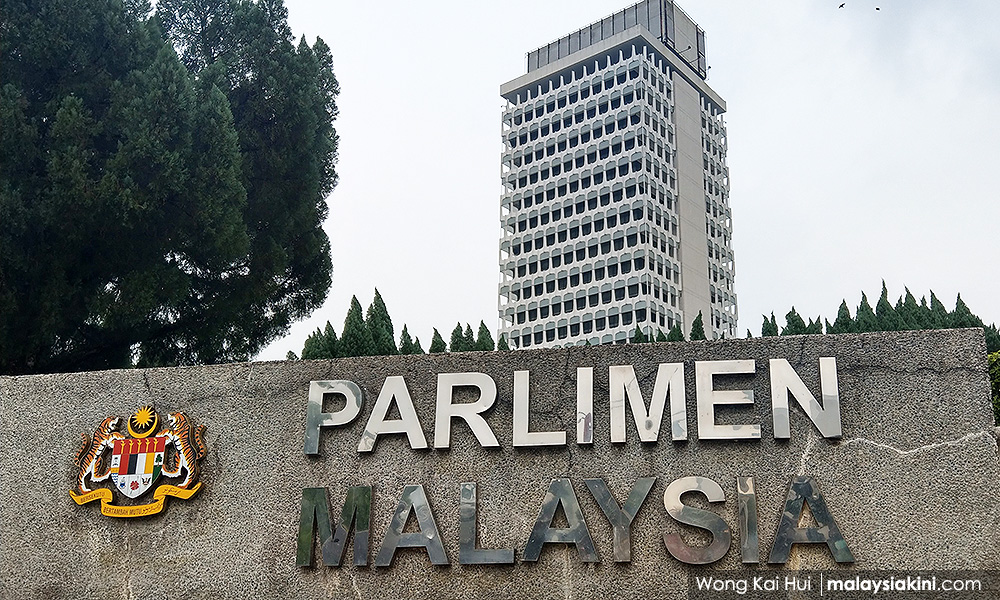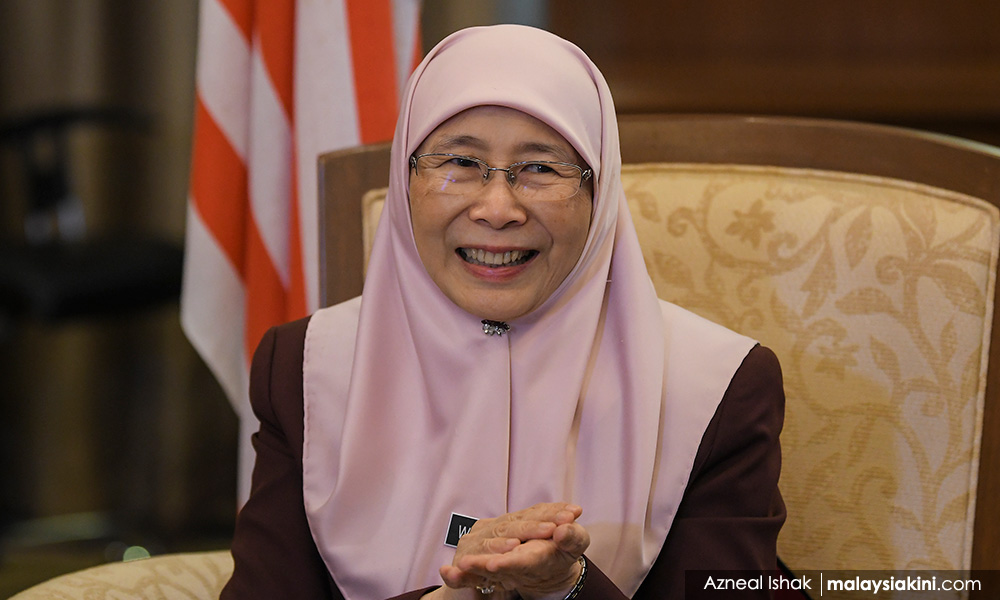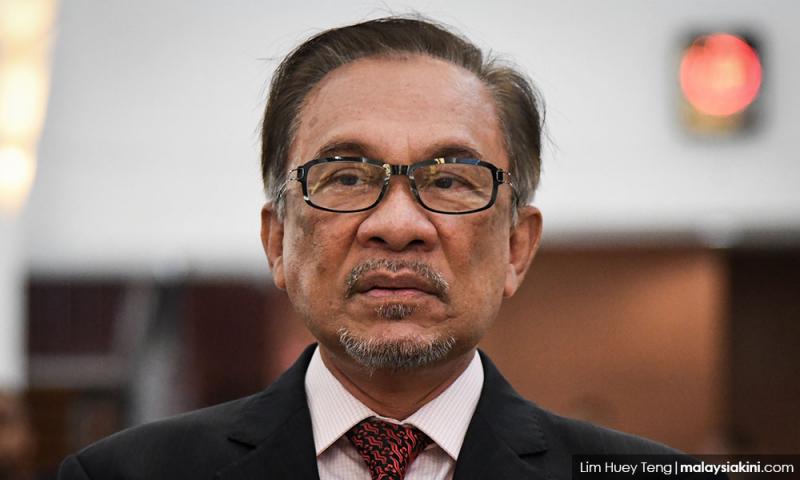Why Anwar Ibrahim is the de facto prime minister
ADUN SPEAKS | In this article, I will explain why Anwar Ibrahim is, by any acceptable standard, already the prime minister of Malaysia.
First and foremost, our Federal Constitution is governed by two parallel and complementary sets of rules – the written and unwritten rules – the latter being better known as conventions of the constitution or constitutional morality.
Although conventions are, in the strictest sense, not enforceable by the court, they are still considered and accepted as binding by the society; as is the election pact among Pakatan Harapan allies for Dr Mahathir Mohamad to helm as the interim prime minister while Anwar's release and pardon were underway.
With part of the pact fulfilled, we are now at exactly halfway waiting for the other part to be realised.
The discretionary powers, as bestowed upon the Yang di-Pertuan Agong and other heads of states by the Federal Constitution, is something that is constantly being tested out, especially in recent times:
- 2009 – The Perak Crisis, where the Perak ruler refused the menteri besar’s request to dissolve the state assembly to make way for a fresh state election, but accepted the support from three defecting state assemblypersons to BN to become the state government.
- 2014 – The Selangor ruler refused to appoint Dr Wan Azizah Wan Ismail as the menteri besar and asked the winning coalition, then known as Pakatan Rakyat, for more than one name for the post;
- 3. 2018 – Sabah's two chief ministers;
- 4. 2018 – Perlis Crisis, where the menteri besar was sacked right after being sworn in; and more recently,
- 5. 2019 – Johor's ruler’s insistence in exercising his discretionary powers to appoint the menteri besar.
While nowhere in the constitution does it state the extent of the Yang di-Pertuan Agong's discretionary powers, Article 71 and Schedule 8 require “the Ruler to act in accordance with the advice of the Executive Council or a member thereof acting under the general authority of the Council...”

Therefore, should the ruler decide to act in accordance with the advice of, say, the prime minister, it lies solely on the ruler's ultimate discretion to do so.
He could, if he chooses to, disregard the prime minister or head of state's advice under certain circumstances (such as to ignore advice to dissolve the Parliament or the State Legislative Assembly; or in the appointment of cabinet ministers or excos who serve at the pleasure of the ruler).
However, where there is a prevailing statute that presides, the discretionary powers of the ruler cease to exist.
For instance, the ruler is duty-bound to appoint the leader of the winning coalition, and unless there is a hung Parliament, the ruler cannot exert his discretionary powers.
As the supreme head who rules over the executive, legislature and judiciary, the ruler is bound by convention and decorum towards the people’s powers, and by extension, the Conference of Rulers.
Modelled after the Westminster tradition
Although our Federal Constitution is modelled after the Westminster tradition, Harshan Kumarasingham has aptly coined former British colonies in Asia that practice cultural and constitutional deviations from the original Westminster, as “Eastminster."
The similarities between Malaysia's constitutional monarchy and that of the United Kingdom can also be traced in other Commonwealth countries such as India, Australia and Canada.
Similar cases of dispute, stemming from discretionary powers, interfered and threatened the country’s democratic process. This points to a need to define and create legal controls over these powers.
Ironically, it is also particularly because of this discretion and convention which places Anwar as the eighth prime minister.
The rulers favour Anwar and with the support and will of the Parliament, the prime ministership already belongs to the one viable candidate – Anwar.

To regress a little, the then Yang di-Pertuan Agong, who was the Kelantan ruler, offered Wan Azizah (photo) the post of prime minister, which she refused.
Through the ruler's discretionary powers, Malaysia would have had her first woman prime minister should Wan Azizah have accepted it then.
Convention has little to do with Mahathir's appointment as prime minister. Despite some obvious delays, the ruler ultimately conceded to appointing Mahathir rather unenthusiastically.
Mahathir fulfilled every stipulated condition and the ruler had to carry out his obligations in accordance with the Federal Constitution. Through the Conference of Rulers, the king resigned and in his place is the newly-minted ruler from Pahang.
The case in point being Lim Chong Eu's appointment as the chief minister of Penang, even though Umno had more seats than Gerakan and MCA in Penang back in 1986.
This points to the fact that the appointments of the prime minister and government have more to do with party politics rather than the discretion of the ruler.
Owing to the fact that the prime minister must command the confidence of the majority of the members in Parliament, an exodus of Umno members began to hop to join the prime minister’s party.
As suggested by law professor Andrew James Harding, an anti-hopping law will solve most of our country’s problems.
Coming back to conventions and discretions, it is no doubt that still, Anwar commands the most support from the Harapan allies and also the Parliament, with PKR commanding the largest number of seats in the coalition.
Therefore, it is simply a matter of time before Mahathir hands over the reins to Anwar.
Meanwhile, the prime minister-in-waiting must remain as the de facto prime minister for now, despite the fact that the interim prime minister has reiterated, over and over again, that Anwar will be his successor.
JASON ONG is the state assemblyperson for Kebun Bunga and vice-chairperson of PKR Penang.
The views expressed here are those of the author/contributor and do not necessarily represent the views of Malaysiakini.
RM12.50 / month
- Unlimited access to award-winning journalism
- Comment and share your opinions on all our articles
- Gift interesting stories to your friends
- Tax deductable
